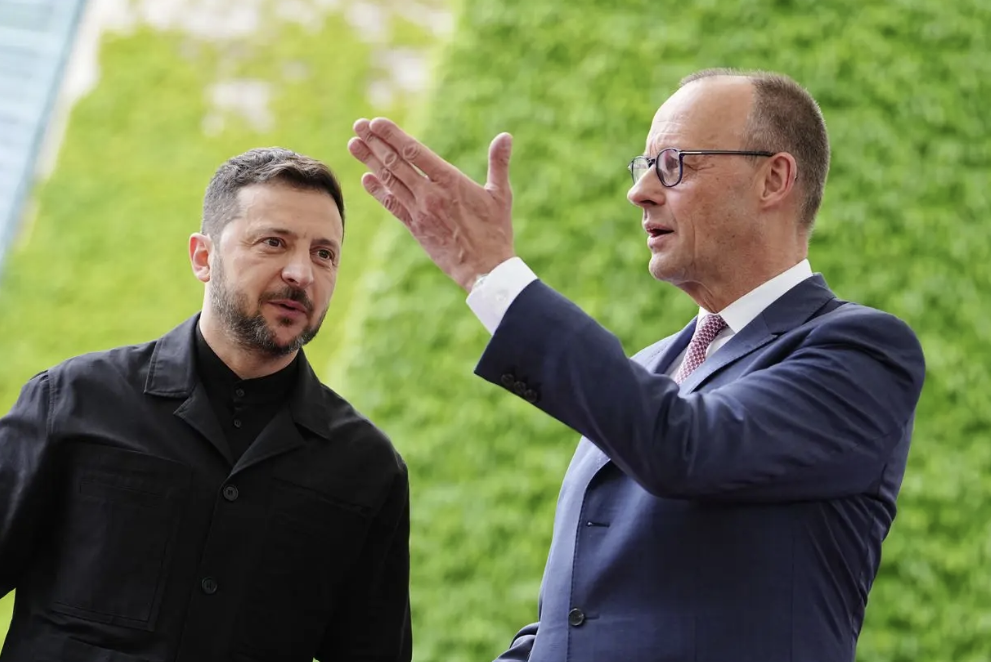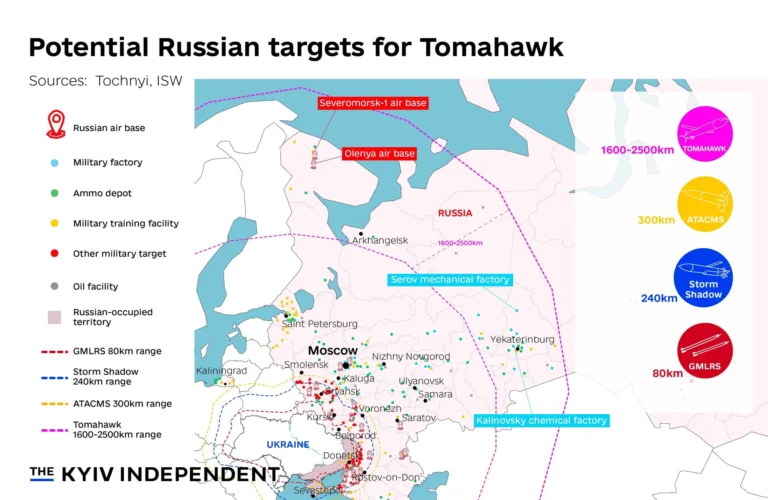
As the August 15 meeting between U.S. President Donald Trump and Russian President Vladimir Putin in Anchorage draws near, the war in Ukraine is entering a dangerous and unpredictable phase. On the battlefield, Ukraine has suffered one of its deadliest strikes on foreign volunteers, escalated drone attacks deep inside Russia, and continued to brace for the possibility of a peace deal negotiated without its input. In the diplomatic arena, European leaders are urgently maneuvering to influence Trump before his face-to-face with Putin.
Deadly Strike on Foreign Recruits
On July 21, a Russian missile hit a Ukrainian military training camp near Kropyvnytskyi, targeting the mess hall during lunchtime. According to soldiers who survived, the blast killed at least a dozen foreign volunteers from countries including the United States, Colombia, Taiwan, and Denmark, with over 100 others wounded.
A recruit from Florida, in Ukraine for less than a week, described scenes of devastation: bodies strewn near the mess hall, wounded soldiers screaming for help, and ammunition stores exploding after the initial strike. He criticized the absence of an air raid alarm before the attack and the lack of first aid kits nearby.
The camp, part of Ukraine’s military intelligence agency’s international legion, had long faced grumbling over security, particularly the danger of gathering large numbers of troops in one place. This was not the first such tragedy Ukraine has lost both domestic and foreign recruits to strikes on barracks and training academies before.
In response, Ukraine’s top general Oleksandr Syrsky has ordered as much training as possible to be moved underground to minimize vulnerability.
European Leaders Scramble to Influence Trump
Trump’s Alaska meeting with Putin, the first of his second term, has alarmed Kyiv and European capitals, especially after Trump suggested that a peace deal could involve both sides ceding territory. Ukrainian President Volodymyr Zelensky has been excluded from the summit, with Trump bluntly stating, “he wasn’t part of it.”
Before Trump meets Putin, German Chancellor Friedrich Merz is organizing a high-stakes video call on August 13 with Trump, NATO Secretary-General Mark Rutte, Zelensky, and other European leaders. Their goal: to present a united front and insist that any talks start with a full cease-fire, rejecting any premature discussion of redrawing borders.
Merz and his allies fear that a poorly conceived deal could embolden Russia, destabilize NATO’s eastern flank, and set a precedent for rewarding military aggression. They are particularly concerned that Putin might persuade Trump to pressure Zelensky into concessions Kyiv would never accept, possibly leading the U.S. to reduce critical intelligence support to Ukraine.
Zelensky’s Diplomatic Offensive
Zelensky will meet Merz in Berlin before joining the call with Trump and European leaders. He has held over 30 consultations in recent days to coordinate strategy, insisting that “pressure must be exerted on Russia for the sake of a just peace” and warning against Russian deception.
The Ukrainian position remains firm: no recognition of Russian occupation, no new territorial concessions, and a ceasefire as the first step toward meaningful negotiations.
Ukraine Strikes Back Inside Russia
Even as diplomatic maneuvering intensifies, Ukraine is expanding its long-range drone campaign against Russian oil infrastructure, a vital revenue source for Moscow’s war machine.
On August 13, Ukrainian drones struck the Unecha oil pumping station in Russia’s Bryansk Oblast, sparking a major fire. Unecha is a key hub in the 9,000-kilometer Druzhba pipeline network, which supports Russia’s defense industry. Ukraine’s military confirmed the attack, carried out in coordination with the armed forces, as part of its broader effort to degrade Russia’s logistical and financial capacity to wage war.
Russia’s Defense Ministry claimed to have intercepted 46 drones overnight across multiple regions, but independent reports indicated fires and damage at several oil-related facilities. In Volgograd, debris fell onto a residential building, prompting evacuations.
High Stakes in Anchorage
The convergence of battlefield losses, intensified Ukrainian strikes inside Russia, and frantic diplomatic outreach underscores the high stakes of the Alaska summit. For Ukraine and its allies, the danger is not only what is agreed upon in Anchorage, but also what could be conceded in their absence.
If Trump and Putin emerge with a framework for “peace” that undermines Ukraine’s sovereignty or rewards territorial aggression, the war could enter a new and even more perilous chapter.
As Europe and Ukraine push to be heard before the talks, the next 48 hours will be critical in determining whether this summit becomes a step toward a just peace or a geopolitical setback with lasting consequences.
If you find this kind of deep-dive, battle-and-diplomacy coverage valuable, you can support my work on Buy Me A Coffee. Your contribution helps me keep independent reporting alive and accessible.




